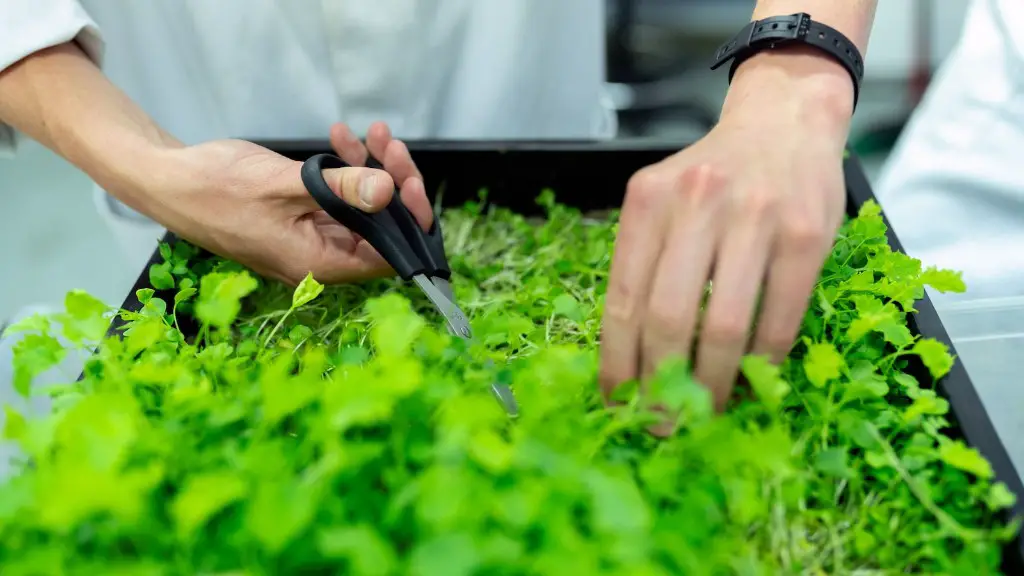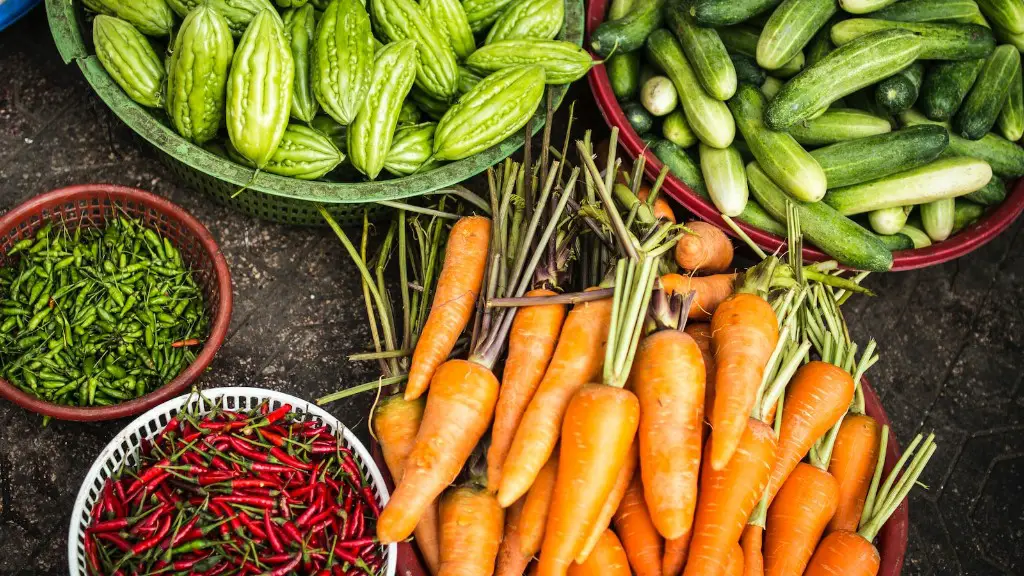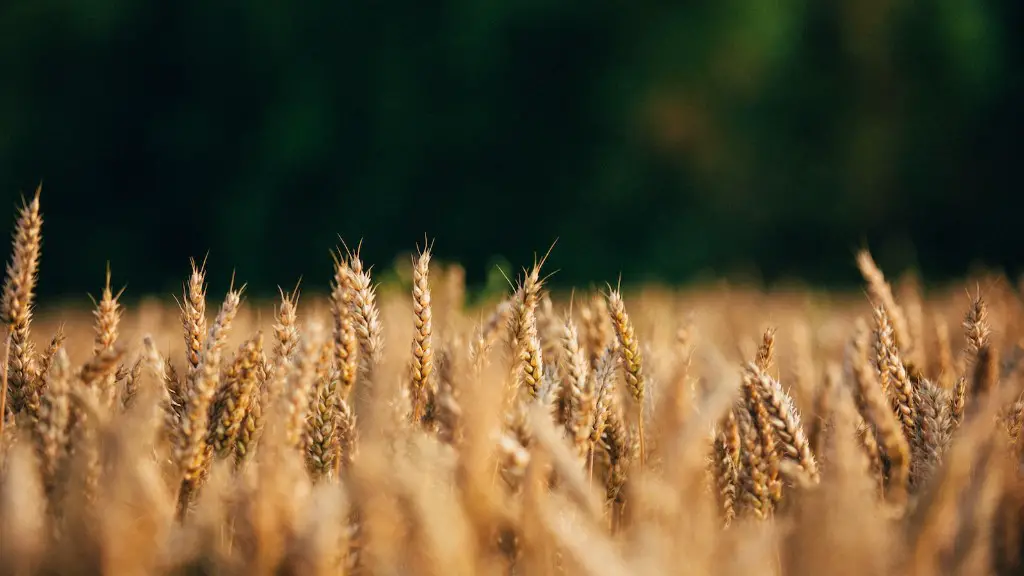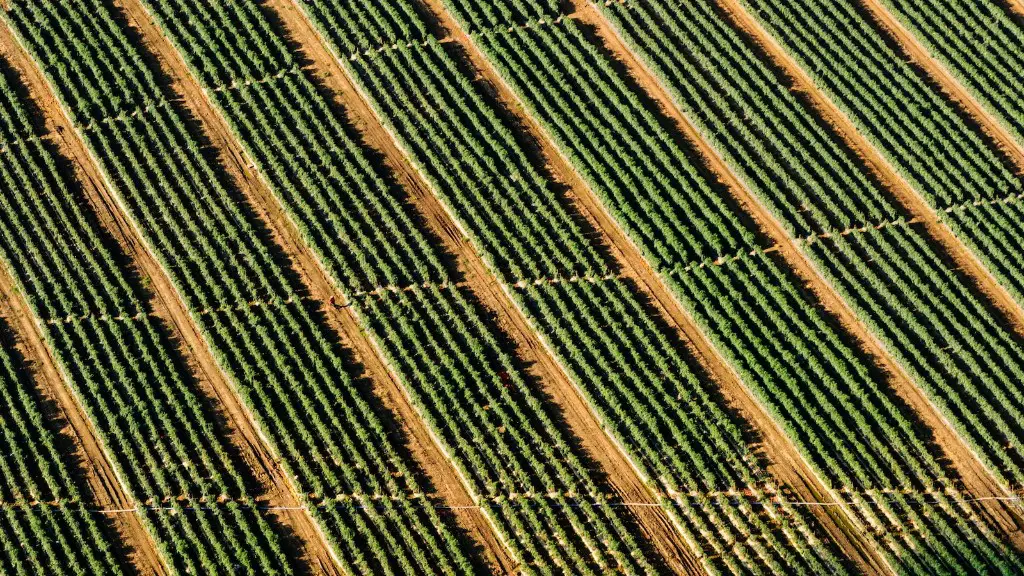The Agricultural Revolution was a period of rapid agricultural development between the 18th century and the end of the 19th century. This period saw a massive increase in agricultural productivity and output, thanks to a series of innovations in farming techniques. The Agricultural Revolution was a vital step in the development of human civilization, and it allowed for the growth of cities and the rise of modern industry.
The development of agriculture was good for humans because it allowed them to domesticated plants and animals, which led to the development of civilizations. Agriculture allowed for the growth of cities and the rise of civilizations. It also allowed for the growth of food surpluses, which allowed for the development of trade and commerce.
How did the development of agriculture impact humans?
Farming is one of the most important inventions in human history. It allowed for the growth of cities and civilizations, and the domestication of crops and animals. Today, farming is a vital part of the global food system, and the world population would be much smaller without it.
More abundant food supplies have allowed for denser populations and more settlement. Agriculture has allowed for people to pursue other interests beyond just food production.
Was the agricultural revolution good for humans
The agricultural revolution was a turning point in human history, marking a shift from hunting and gathering to a more settled, agriculturally based lifestyle. This change had a number of consequences for human societies, including a rise in inequality and a decline in nutrition and health. The agricultural revolution also led to the domestication of animals, which led to the rise of new diseases.
Urban farming is a type of agriculture that is carried out in urban areas. It makes use of vacant lots, rooftops, and other unused areas to grow crops and raise animals. Benefits of urban farming include lower greenhouse gas emissions, minimal transportation requirements, and reduced energy use for food production. As the benefits are becoming more and more acknowledged, the trend of urban farming is starting to become quite popular.
How did the development of agriculture change the way humans lived?
The development of agriculture about 12,000 years ago changed the way humans lived. They switched from nomadic hunter-gatherer lifestyles to permanent settlements and farming. Agriculture allowed for the domestication of plants and animals, which led to the development of civilizations. Agriculture also allowed for the growth of cities and the rise of trade and commerce.
The transition to agriculture had a negative impact on human oral health. This is because agriculture led to a decrease in the diversity of plants and animals, which in turn led to a decrease in the nutrient content of the diet. This resulted in a higher incidence of nutritional deficiencies and infectious diseases. In addition, the transition to agriculture led to an overall reduction in human stature.
What are 3 benefits of the Agricultural Revolution?
The development of agriculture is called a revolution because it has had such a radical impact on human society. Agriculture has allowed for the development of cities, industrialization, and a massive increase in the human population.
The Agricultural Revolution was a turning point for humanity. It was when we first started to domesticate plants and animals and develop early technology. This allowed us to settle down in one place, which led to the development of civilizations.
The Agricultural Revolution was a positive thing because it allowed humans to develop technologies and settle down in one place. This led to the development of civilizations. However, it also had some negative impacts, such as the loss of genetic diversity and the rise of new diseases.
What were some of the positive and negative impacts of agriculture
Sustainable resource management is the practice of using resources in a way that does not damage or deplete them. This includes both renewable and non-renewable resources. Sustainable resource management is an important part of preserving our environment and protecting our future.
Agriculture has been a defining factor in the history of human civilization. From the early days of hunter-gatherers, to the development of early agricultural societies, to the modern day, agriculture has played a critical role in human society. There are many pros and cons to agriculture, but overall it has been a positive force in human history.
What are four impacts of the development of agriculture?
Agriculture is one of the leading causes of environmental problems that lead to environmental degradation. This is because agriculture contributes to climate change, deforestation, biodiversity loss, dead zones, genetic engineering, irrigation problems, pollutants, soil degradation, and waste. All of these problems have a negative impact on the environment, which can lead to a decline in the quality of the environment.
The Agricultural Revolution of the 18th century was a major turning point in British history. It saw the introduction of new farming techniques and improved livestock breeding which led to increased food production. This, in turn, allowed for a population spike and increased health. The Agricultural Revolution paved the way for the Industrial Revolution, which would transform Britain into a powerhouse of industry and commerce.
What were the effects of early agriculture on peoples way of life
The increased life span of man due to food availability has led to the establishment of trade due to surplus goods. This has led to people going in to other fields such as crafts and religion. The development of new religions has also been a result of this.
The Agricultural Revolution was a period of time marked by unparalleled changes in diet, culture, technology, social organisation and disease. This period saw the biggest shift ever in human history, with humans moving from a hunter-gatherer lifestyle to one of farming and agriculture. This shift had a profound impact on every aspect of human life, and laid the foundation for the modern world as we know it today.
What were the cons of the Agricultural Revolution?
The Agricultural Revolution did bring about some negative effects, such as the need for efficient farming conditions like adequate buildings, roads, and drainage. While these conditions were necessary for successful farming, they also put a strain on farmers financially. In addition, the transport facilities needed to get the product to market also added to the cost of running a farm.
The social benefits for farm families can be significant. They can provide a sense of achievement and fulfilment through seeing the effects of their work on the people who spend time on the farm. They can also make a difference in the lives of individuals by helping them to become more included in society. These benefits can be particularly important for families who have been excluded from mainstream society.
Warp Up
The development of agriculture was a mixed blessing for early humans. On the one hand, it allowed for the domestication of plants and animals, which led to a more reliable food supply and a sedentary lifestyle. On the other hand, it also led to hard work and a greater vulnerability to disease.
It is difficult to definitively say whether the development of agriculture was good or bad for humans. On the one hand, agriculture allowed humans to settle down in one place and form civilizations. On the other hand, agriculture also led to a division of labor, which some argue led to the oppression of poor and working class people. In the end, it is up to each individual to decide whether they believe the development of agriculture was good or bad for humans.





